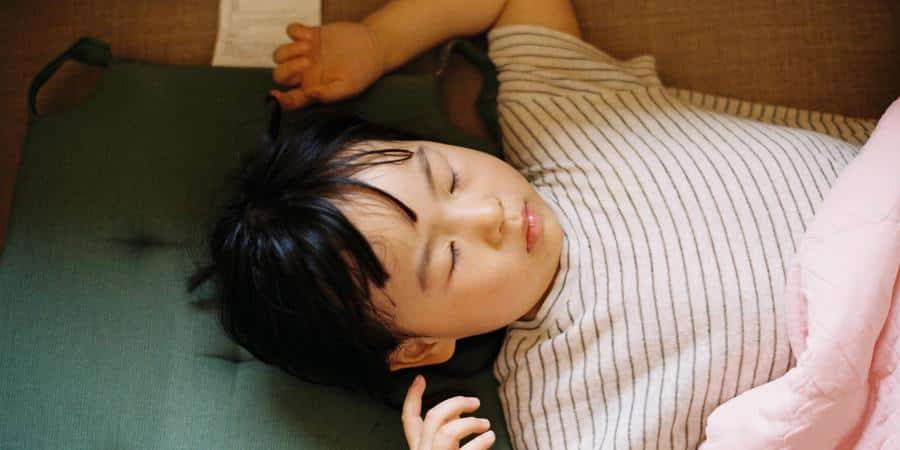Written by Melissa Doman, Sleep Consultant
A child with cerebral palsy may struggle to get the hours of sleep they so desperately need. It may take hours for them to fall asleep, or your child may be waking multiple times a night. They could be up for long stretches, or can’t calm down without needing you there.
For many parents, it can be difficult to know what’s causing these sleepless nights — sore muscles, digestion, too tired, not tired enough? You feel like you have to put your detective hat on every single night.
And, I know that it often feels like you’re grasping at straws when trying to solve the problem. I know that for many kids I work with, the first few months of their life were very touch and go. Your child may have had constant monitoring, or needed many other interventions before coming home. Any mother or father would keep their child close after that experience, but now your child is older things are hopefully more stable. However, they still may have difficulties with sleep.
To get your child resting better, it’s always best to start simple. So, here are my simplest (and incredibly effective) tips to help your child with cerebral palsy get a better night’s rest.
- As part of the bedtime routine, give your child a 5-10 minute massage. Along with the bath, this is a great way to reduce muscle contractions and to calm your child’s nervous system. This can help kids with sensory hypersensitivity as well. Massage is something that can be done during the day too! If your child doesn’t take a bath every night, you can get a magnesium gel or cream to get the effects of the epsom salt bath.
- Keep your child’s room nice and cool. For many kids with cerebral palsy, this is one of the most effective ways to improve middle of the night wake ups. I’ve had parents tell me that this change alone can cut wake ups in half…or stops them completely (really). My recommendation is to keep your child’s room at 22°C at most. This allows the body to go into the deepest stages of sleep to stay there. Make sure not to overdress your child, and have them wear cotton pyjamas.
- Do your best to keep your child regular. Many of the children that I see with special needs have issues with constipation, which can greatly affect their sleep. Often, this discomfort can make it harder to sleep, and can cause disruptions at night. To make sure that your child is having more consistent bowel movements, I recommend increasing fibre intake during the day with food, or with natural remedies like psyllium husks, flax, or chia seeds. Make sure that your child is getting plenty of fluid during the day, and give a stomach massage as needed. The additional benefit of epsom salt or magnesium gel is that this will also help to soften stools and promote regularity.
- Keep blue light at a minimum. This tip is helpful for everyone in the family, not just your child with special needs.Set boundaries around screen use including tablets, TVs, computers and phones. This blue light tricks the brain into thinking it’s still daytime, and can stop the body from producing melatonin naturally. Without this dump of melatonin in the system, it delays sleep and can make kids overtired. So, my recommendation is to cut screens at least one hour before bedtime, and try to cap daytime screen use to two hours.
- Start the night off with an epsom salt bath. For many kids with cerebral palsy, muscle soreness and tightness can be a big factor when trying to fall asleep.Your child may be working hard to learn new skills or be putting increased effort in to everyday tasks. This may result in them being really tired by the end of each day. At the end of the day, your child’s body needs some time to unwind and recuperate. An epsom salt bath is a great way to get the added magnesium to relax the muscles and will help your child to fall asleep faster. Added bonus: get epsom salt infused with lavender, an essential oil that can help with sleep.
These tips are fairly easy to implement, whether you just do one or implement all of them. With consistency, many parents have made great headway with helping their child with special needs to get a better night’s rest.
And, simple is better! Sleep doesn’t have to be a complicated process, or a mystery to figure out. With the right tools, your child has all the potential to have the great night’s sleep they deserve.
Melissa Doman is a special needs sleep consultant, and has a decade of experience teaching parents of children with a variety of diagnoses, and uses this knowledge to enhance her sleep training programs. She is passionate about empowering parents with knowledge to help their children reach their full potential. Melissa has worked with children diagnosed with Cerebral palsy, Trisomy 21, Autism, ADD/ADHD, developmental delays, and more. She loves coaching parents to get their kids sleeping well and independently. www.melissadomansleepconsulting.com
